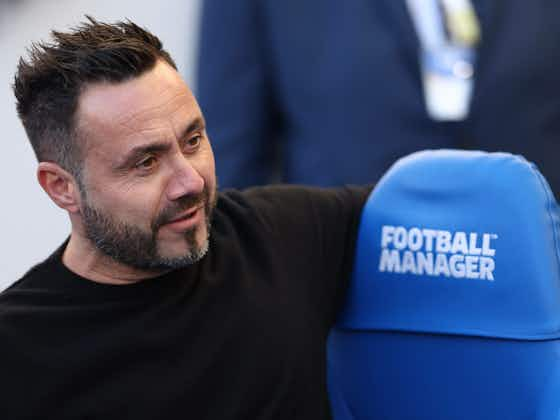EPL Index
·20 May 2024
Report: Managing Transitions: Brighton After De Zerbi

In partnership with
Yahoo sportsEPL Index
·20 May 2024

Brighton & Hove Albion’s journey into the European football landscape has been nothing short of a revelation. However, the club now finds itself at a critical crossroads, highlighted in a detailed article by The Athletic. This pivotal moment is underscored by the departure of the charismatic Italian coach, Roberto De Zerbi, stemming from a fundamental clash of visions with owner-chairman Tony Bloom, particularly regarding transfer market strategies.
The crux of the issue lies in the divergent paths each party envisions for sustaining the club’s progress. Bloom has been unwavering in his adherence to a recruitment philosophy that has undeniably borne fruit. This approach targets either burgeoning talents from around the globe, capable of being polished into valuable assets, or seasoned professionals who bring a wealth of experience and leadership. Players like Kaoru Mitoma and Danny Welbeck exemplify these categories respectively.
On the other hand, De Zerbi’s tenure at Brighton was marked by a desire to infuse the squad with players who occupy the middle ground in their career trajectory—those in their mid-to-late twenties, seasoned yet still ripe with potential. This strategy, however, poses a stark contrast to the economical blueprint that Bloom champions.
The discord between De Zerbi and Bloom came to a head over several transfer dealings. The acquisition of Mahmoud Dahoud, despite being a free transfer, represented a significant financial outlay in terms of wages, which deviated from Bloom’s usual fiscal prudence. Similarly, while the winter transfer window saw the arrival of young Argentine talent Valentin Barco, De Zerbi was vocal about his concerns regarding the readiness of such players for immediate Premier League challenges.
This strategic tug-of-war reached its zenith with Brighton’s mixed results on the field. Despite leading the team to a commendable position in both domestic and European competitions, De Zerbi felt constrained by the club’s recruitment policy, which he believed limited his ability to effectively compete on multiple fronts.
De Zerbi’s approach to football is deeply rooted in an expressive, attack-oriented style, which has endeared him to fans and critics alike. His belief in a proactive, rather than reactive, transfer policy is a testament to his philosophy of football as a dynamic and evolving sport. However, Bloom’s model—focused on long-term sustainability—prefers a more calculated risk approach.
The tension between immediate needs and long-term goals is a common theme in football management, and Brighton’s scenario is a textbook example. The departure of a coach like De Zerbi highlights the often overlooked aspect of football management: the alignment of club culture and managerial philosophy.
As Brighton prepares for a future without De Zerbi, the club faces the challenge of maintaining its upward trajectory while staying true to the principles that have facilitated its recent successes. Bloom’s next managerial appointment will be crucial and is expected to align more closely with the club’s established strategies. This will be essential not only for continuity but also for leveraging the foundations laid during De Zerbi’s transformative tenure.
In conclusion, Brighton & Hove Albion stands at a juncture where the decisions made now will resonate far into the future. The club’s ability to balance the dynamism of football with strategic prudence will determine its path forward. As The Athletic rightly points out, the saga of De Zerbi and Bloom is a narrative of footballing philosophy as much as it is of club management. It serves as a compelling case study on how the beautiful game is as much about the hearts in the stands as it is about the figures on a balance sheet.
The departure of Roberto De Zerbi is a testament to the complex interplay of ambition, strategy, and personality in football. As Brighton looks to its next chapter, the football world will be keen to see how it navigates these tumultuous waters.






























































